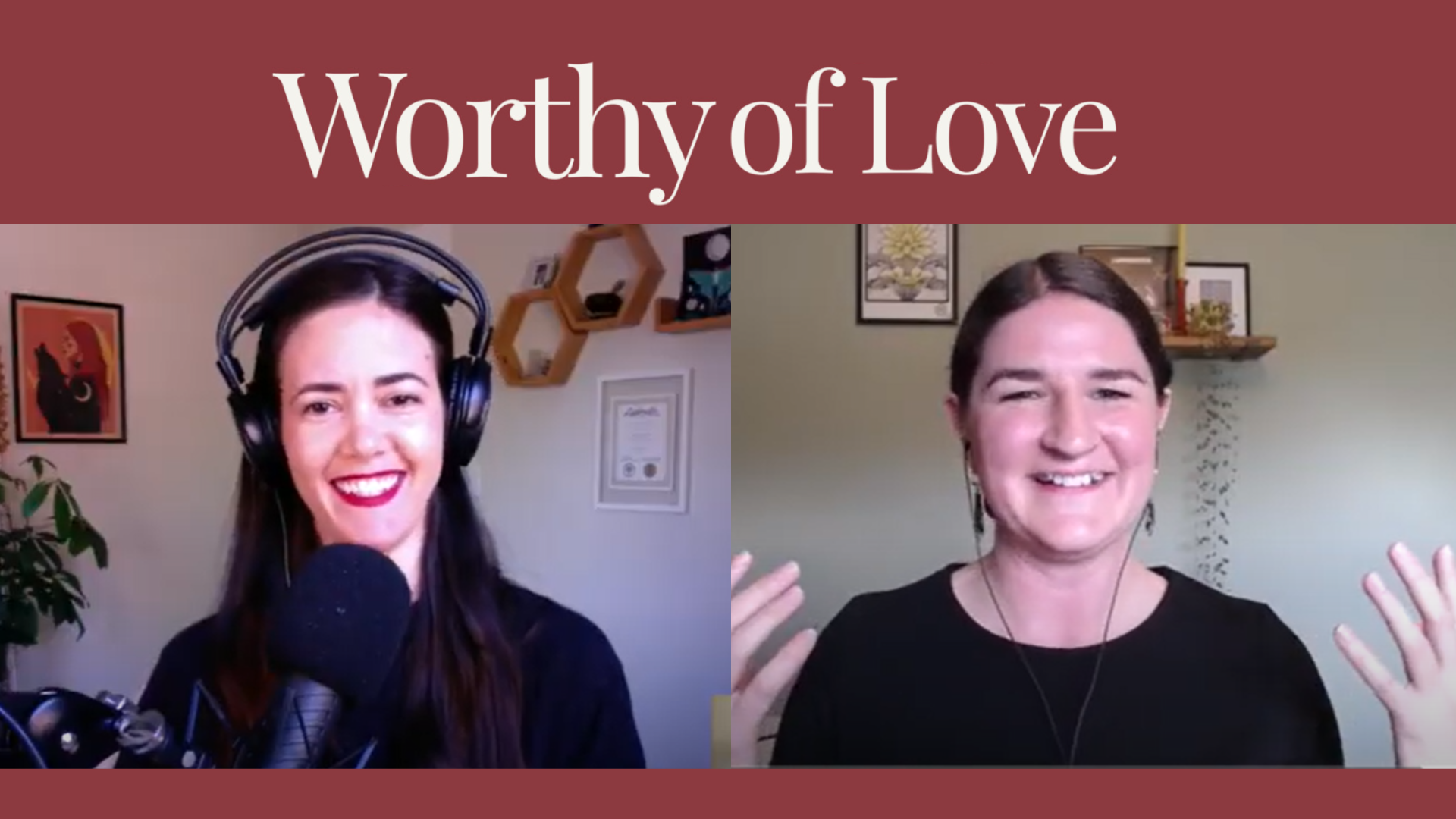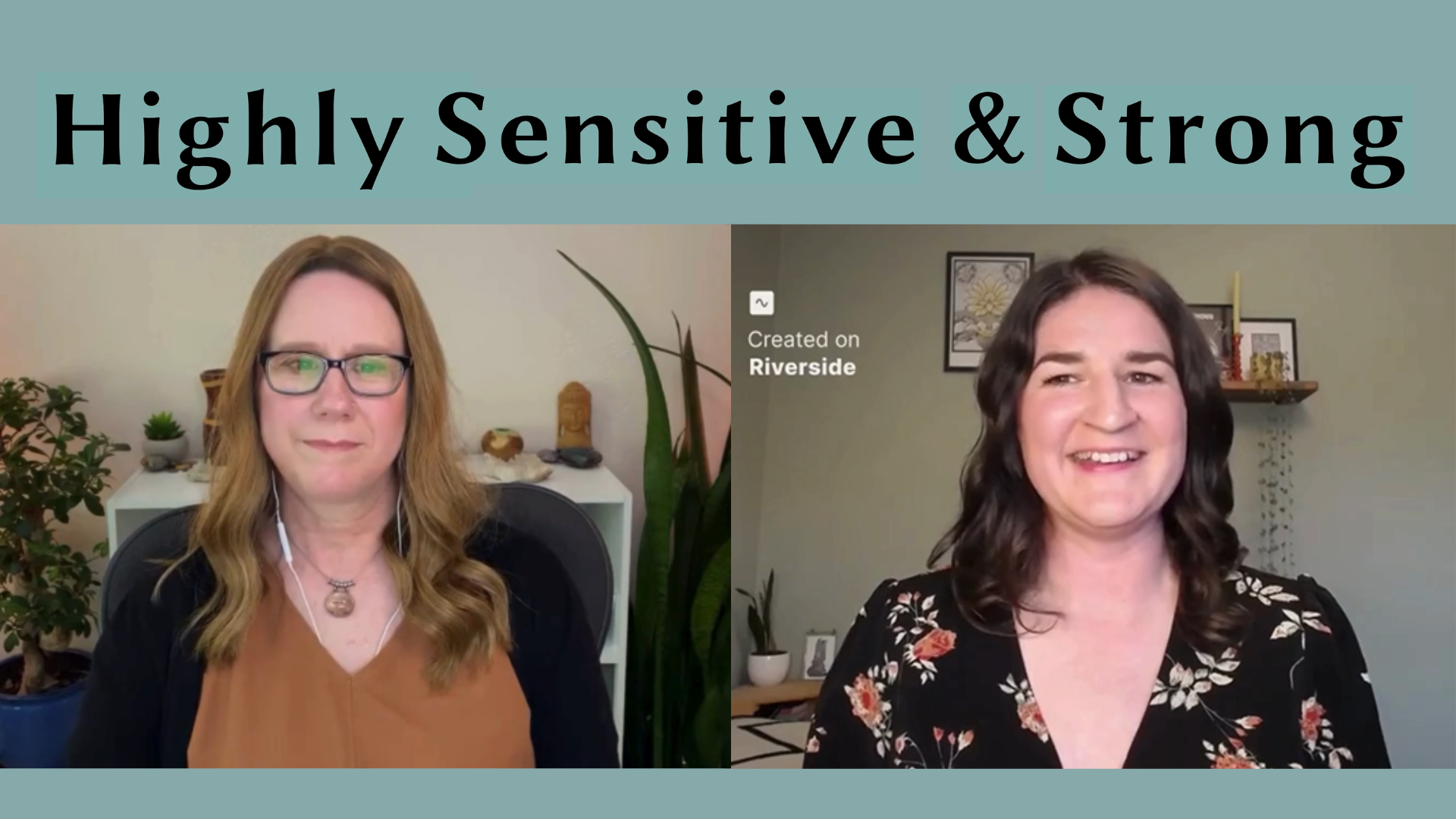Reading time: 6.5 mins
Perhaps you’ve found your way to this page because you’ve noticed that you use food to comfort yourself when emotions like stress, sadness and boredom come up. Maybe you’re feeling like your emotional eating is out of control at times and that just worries you more. And perhaps you’ve heard the term “binge eating” and you’re wondering if that’s in fact what you’re doing.
If so, you’re in the right place. In this article, we’ll look at exactly what emotional eating and binge eating are and their main differences. For those of you who resonate with being a highly sensitive person, an empath or someone who just feels things in a big way, we’ll also look at how this sensitivity can play into emotional eating and binge eating.
This is all about better understanding your own behaviour so that you can expand your ability to be with uncomfortable emotions, improve your relationships with food and your body and even get the right support for you on this journey, if that’s what you want.
Now, take a nice long and full breath and let’s explore…
What is emotional eating?
I want you to know that it’s okay if you recognise yourself as an emotional eater and that it’s not necessarily a problem that needs to be fixed. Eating is emotional and it’s wired within us from a young age. Think about a baby being fed; not only are they getting the nourishment they need to survive, but they’re also experiencing closeness, comfort, warmth, love and safety from their caregiver and that’s incredibly powerful stuff!
And as we touched on above, food also triggers neurotransmitters like serotonin and dopamine which help us to feel good, and that’s no mistake by nature. Eating brings about pleasure so we’re driven to do it as part of our survival. Imagine if you got no pleasure from food at all - eating would feel like a real chore! Again, it’s a part of us.
However, emotional eating can become a challenge when it’s someone’s primary way of dealing with emotional discomfort, especially if they’re going through a tough period in their life and they’re using food in this way a lot. Those who regularly emotionally eat may find that it impacts their health and other areas of life like self-esteem and relationships, creating more of a cycle of emotional eating.
What is binge eating?
Binge eating is
when someone eats a large amount of food, perhaps the food that they wouldn’t consciously choose, in a condensed period of time and past the point of comfortable fullness. It can feel like an eating frenzy where all control is lost. During and immediately following a binge one tends to feel a temporary sense of release of relief which is quickly followed by feelings like guilt, shame, disgust and regret.
Often a person will try and “make up” for a binge by restricting their food afterwards. This might mean skipping breakfast the next morning, restarting a diet or deciding to “just be good” by cutting out or reducing certain foods. This however perpetuates the cycle of binge eating.
There are a few reasons why someone will binge eat. Often it’s a symptom of restrictive diets with the goal of weight loss. This is tied to a deep sense of “I’m not enough” and the belief that if they could just lose weight and reach their ideal body size, they’ll finally be happy, loveable and successful (a story we’re often told, but is rarely true in the long term).
So, what’s the difference between emotional eating and binge eating?
Three main factors differentiate emotional eating and binge eating…
The intensity:
although emotional eating can feel intense, it doesn’t always involve the loss of control and intensity which is a defining characteristic of binge eating. To an extent, emotional eating is something we all do from time to time; to experience pleasure, to feel reminiscent of people or places or to comfort ourselves after a difficult day.
Root causes:
all emotional eating is rooted in wanting to change how one feels. This is to escape uncomfortable emotions, whatever they may be, and perhaps to evoke more comforting feelings like safety, connection, fullness and warmth.
Binge eating can also come from this place of wanting to “numb” from hard-to-be-with feelings, however this isn’t the only root cause. Often binge eating is a symptom of restrictive diets in the name of weight loss. Behind this desire to lose weight is usually a belief that “If I could just be slim then I will be happy, desirable and successful” which if we dig a little deeper can translate to “I will be worthy and safe”.
In many people, especially the highly sensitive and empathic women that I tend to work with, there is some degree of both the emotional side and the self-worth side driving them to binge eat.
Eating disorder:
emotional eating isn’t a recognised eating disorder, whereas binge eating, if it’s a regular behaviour which causes distress is. However, if emotional eating becomes a regular pattern to try and regulate how someone is feeling, this could turn into binge eating which in time may become a binge eating disorder.
What does this all mean for me?
My hope is that this article has given you clarity on the differences between emotional eating and binge eating so that you can understand yourself and your behaviour better. And from this place of understanding, I hope you can find the right kind of support for you to take care of yourself and improve your relationships with food and your body.
There are two last things that I want to leave you with…
1. If you’re a highly sensitive person, an empath or someone who feels their emotions in a big way, I want you to know that you’re not doomed to emotionally eat or binge eat. Being sensitive is such a gift and your relationship with food might be showing you where you have an opportunity to expand into your sensitivity and learn how to be with it.
2. Labels like “emotional eating” and “binge eating” are helpful to the extent of finding the best information and support for you, but beyond that, hold them really lightly so that they’re easier to let go. It’s interesting to observe how much we love identifying with labels, even the more “negative” ones. However, growth happens when we allow ourselves to move beyond them.
If you recognise that you binge eat and are a highly sensitive woman or empath, I am totally here for your recovery journey. Take a look at
My Offerings
page to explore the ways that my coaching can support you, and feel free to reach out to me by emailing
lucy@bingefreeandworthy.com.
Want insights like this delivered to your inbox?
Sign up to
Inbox Reflections - short, heartfelt emails to support your binge eating recovery as a highly sensitive woman.
Gentle reminders, thoughtful questions, and steady guidance - sent each weekday.
Found this article helpful? Here are some more resources for you
By Lucy Newport
•
November 26, 2025
Discover how low self-worth drives the binge restrict cycle and why Highly Sensitive People (HSPs) can be particularly vulnerable. Learn to reclaim your innate worth.
By Lucy Newport
•
November 4, 2025
Highly Sensitive Person (HSP) struggling with night time binges? Discover the root cause of evening binge eating and how to finally find freedom. Read here.
By Lucy Newport
•
October 1, 2025
Lucy Newport joins the Worthy of Love Podcast to explore high sensitivity, self-worth, and binge eating recovery for highly sensitive women.
By Lucy Newport
•
July 8, 2025
Highly Sensitive? This healing conversation explores the connection between sensitivity, binge eating, and self-worth. Listen as Lucy Newport joins Daphnie Leigh on the Highly Sensitive and Strong Podcast to share her recovery journey and gentle insights for HSPs.
By Lucy Newport
•
June 5, 2025
Emotional discomfort can feel overwhelming - but avoiding it often leads to more pain. This gentle reflection explores how learning to feel can bring lightness in binge eating recovery for Highly Sensitive People.
By Lucy Newport
•
April 2, 2025
Wondering if binge eating is connected to being a Highly Sensitive Person? This article explores the links between the two and shares an approach to recovery for you.
Disclaimer: The content on this page is for educational and informational purposes only and is not a substitute for professional medical or mental health advice, diagnosis, or treatment. Always seek the advice of your physician or other qualified health provider with any questions you may have regarding a medical condition or mental health issue. Do not disregard professional medical advice or delay in seeking it because of something you have read on this page.









